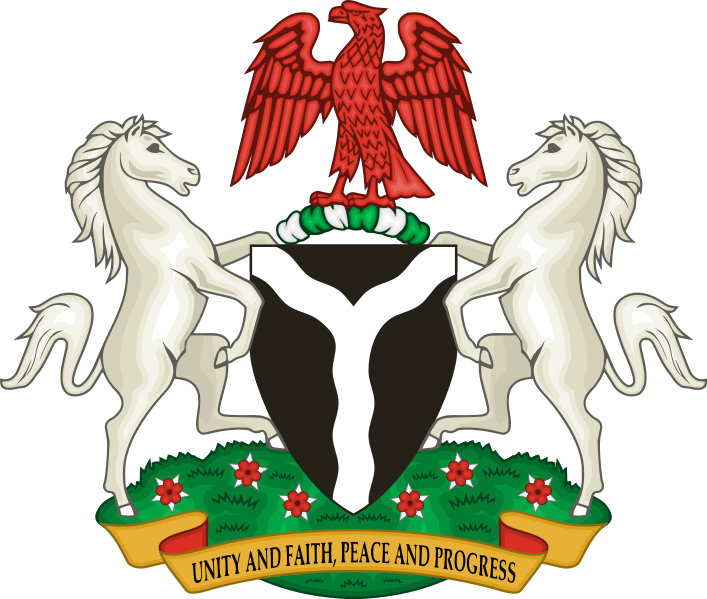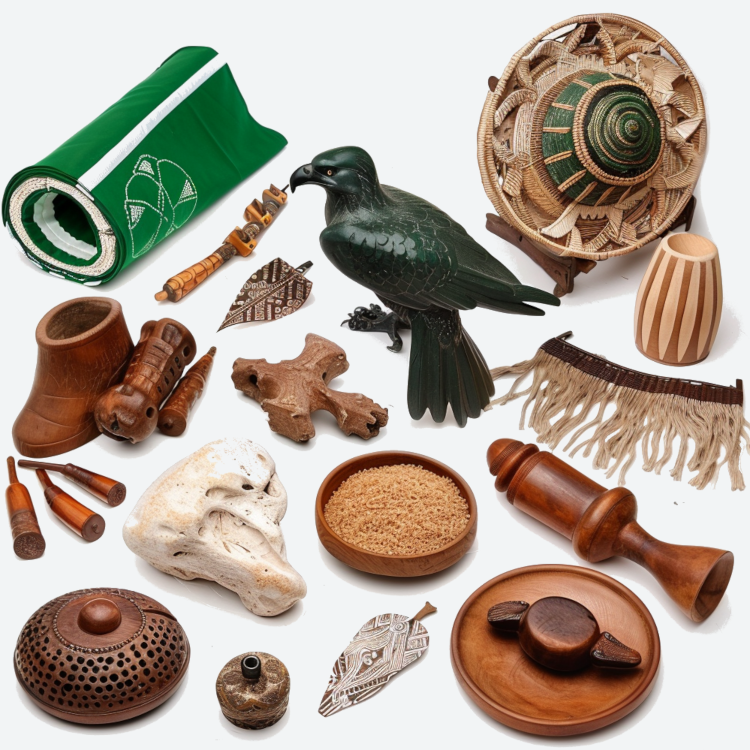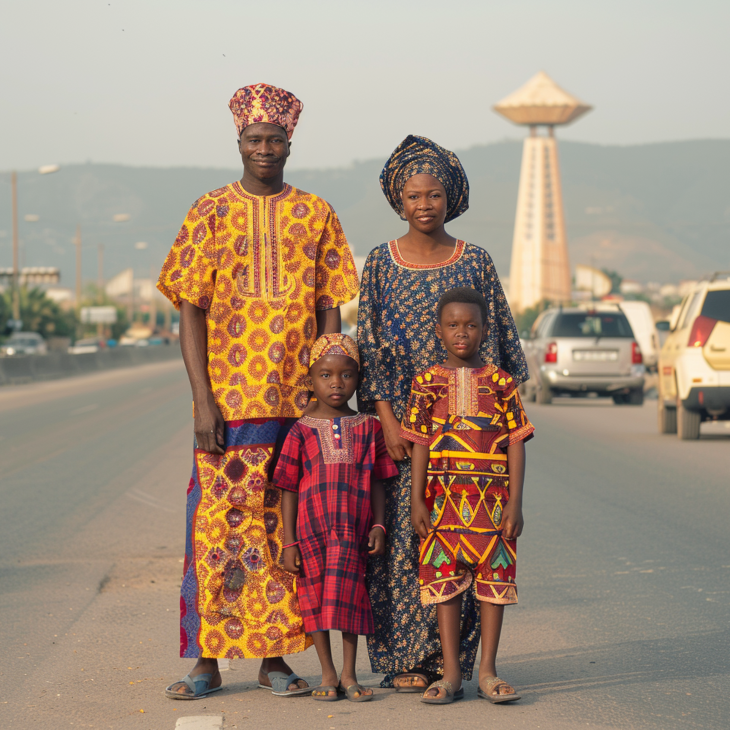About NG

Location
Nigeria is a country located in West Africa, bordered by Benin to the west, Niger to the north, Chad to the northeast, and Cameroon to the east. It has a coastline along the Gulf of Guinea to the south.
Capital
The capital city of Nigeria is Abuja.
Population
As of the latest estimates, Nigeria has a population of approximately 206 million people, making it the most populous country in Africa and the seventh most populous country in the world.
Area
Nigeria covers a total land area of about 923,768 square kilometers (356,669 square miles), making it the largest country in Africa by population and the 14th largest in the world.
Official Language
The official language of Nigeria is English, inherited from its colonial past under British rule.
Government
Nigeria is a federal republic with a presidential system of government. The President of Nigeria serves as both the head of state and the head of government. The country has a bicameral legislature consisting of the Senate and the House of Representatives.
Independence
Nigeria gained independence from British colonial rule on October 1, 1960.
Currency
The currency of Nigeria is the Nigerian Naira (NGN).
Economy
Nigeria has one of the largest economies in Africa, with a diverse economy based on agriculture, oil and gas, manufacturing, telecommunications, and services. The country is a major exporter of crude oil and natural gas, which account for a significant portion of government revenue and foreign exchange earnings. Agriculture also plays a crucial role in the economy, employing a large percentage of the population and contributing to food security.
Natural Resources
Nigeria is rich in natural resources, including petroleum, natural gas, coal, iron ore, tin, limestone, and agricultural land. However, the country faces challenges related to corruption, infrastructure deficits, and uneven distribution of wealth.
Culture
Nigeria is known for its rich cultural diversity, with over 250 ethnic groups and languages. The country's cultural heritage is reflected in its music, dance, art, literature, cuisine, and festivals. Nigerian music, particularly Afrobeat, has gained international recognition, with artists like Fela Kuti, Wizkid, and Burna Boy achieving global fame.
Religion
Nigeria is religiously diverse, with Islam and Christianity being the two dominant religions. There are also adherents of indigenous African religions, as well as small communities of Hindus, Buddhists, and Sikhs.
Education
Nigeria has a varied education system, with both public and private schools at all levels. The country has several universities and higher education institutions, with education being highly valued in Nigerian society.
Infrastructure
Nigeria faces challenges related to infrastructure development, including transportation, electricity, and water supply. Efforts are being made to improve infrastructure through government initiatives and private-sector investment.
International Relations
Nigeria plays an active role in regional and international affairs and is a member of various organizations, including the United Nations, the African Union, the Economic Community of West African States (ECOWAS), and the Commonwealth of Nations.

National Items of Nigeria
Nigerian Eagle
The Nigerian eagle, often depicted on the national coat of arms, symbolizes strength, pride, and the sovereignty of Nigeria.
Niger River
The Niger River, one of the major rivers in Africa, is vital to Nigeria. It symbolizes natural resources, sustenance, transportation, and the lifeblood of the country.
Yoruba Talking Drum
The Yoruba talking drum is a traditional musical instrument. It symbolizes the rich musical heritage, cultural expression, and artistic traditions of the Yoruba people.
Aso Oke
Aso Oke is a traditional hand-woven fabric worn by the Yoruba people. It symbolizes cultural heritage, traditional fashion, and artisanal craftsmanship.
Nollywood
Nollywood, the Nigerian film industry, symbolizes the country's vibrant entertainment sector, cultural expression, and global influence.
Jollof Rice
Jollof Rice is a popular West African dish, with Nigeria's version being particularly renowned. It symbolizes the rich culinary heritage and the shared cultural elements of West Africa.
Benin Bronzes
The Benin Bronzes are a group of plaques and sculptures that once decorated the royal palace of the Kingdom of Benin. They symbolize historical heritage, artistic excellence, and the rich cultural history of Nigeria.
Igbo Ukwu Artifacts
The Igbo Ukwu artifacts are ancient bronze objects from the Igbo people. They symbolize the advanced metallurgical skills and rich cultural heritage of the Igbo civilization.
Sokoto Caliphate
The Sokoto Caliphate, an Islamic state founded in the 19th century, symbolizes historical significance, religious heritage, and cultural identity in Northern Nigeria.
Zuma Rock
Zuma Rock, located near Abuja, is a natural landmark and a symbol of natural beauty, strength, and resilience.
Nigerian Dances
Traditional Nigerian dances, such as the Bata dance of the Yoruba and the Atilogwu dance of the Igbo, symbolize rich cultural heritage, artistic expression, and social traditions.
Adire Fabric
Adire is a traditional indigo-dyed cloth made by the Yoruba people. It symbolizes rich artisanal heritage, cultural identity, and craftsmanship.
Palm Oil
Palm oil is a significant agricultural product in Nigeria. It symbolizes agricultural heritage, economic importance, and traditional cooking practices.
Suya
Suya is a popular Nigerian street food made of spiced grilled meat. It symbolizes a rich culinary heritage, social traditions, and a vibrant food culture.
Osun-Osogbo Sacred Grove
The Osun-Osogbo Sacred Grove, a UNESCO World Heritage site, symbolizes religious heritage, cultural significance, and natural beauty.
Nigerian Literature
Nigerian literature, represented by writers like Chinua Achebe and Wole Soyinka, symbolizes intellectual heritage, cultural expression, and global influence.
Iroko Tree
The Iroko tree is significant in Nigerian folklore and traditional practices. It symbolizes natural beauty, cultural heritage, and ecological importance.

This anthem calls for unity, patriotism, and dedication to the service of Nigeria, while also honoring the sacrifices of past heroes in the struggle for freedom and national unity.
The national anthem of Nigeria is called "Arise, O Compatriots" in English and "Aṣe o" in Yoruba. Here are the lyrics in both languages along with an English translation:


